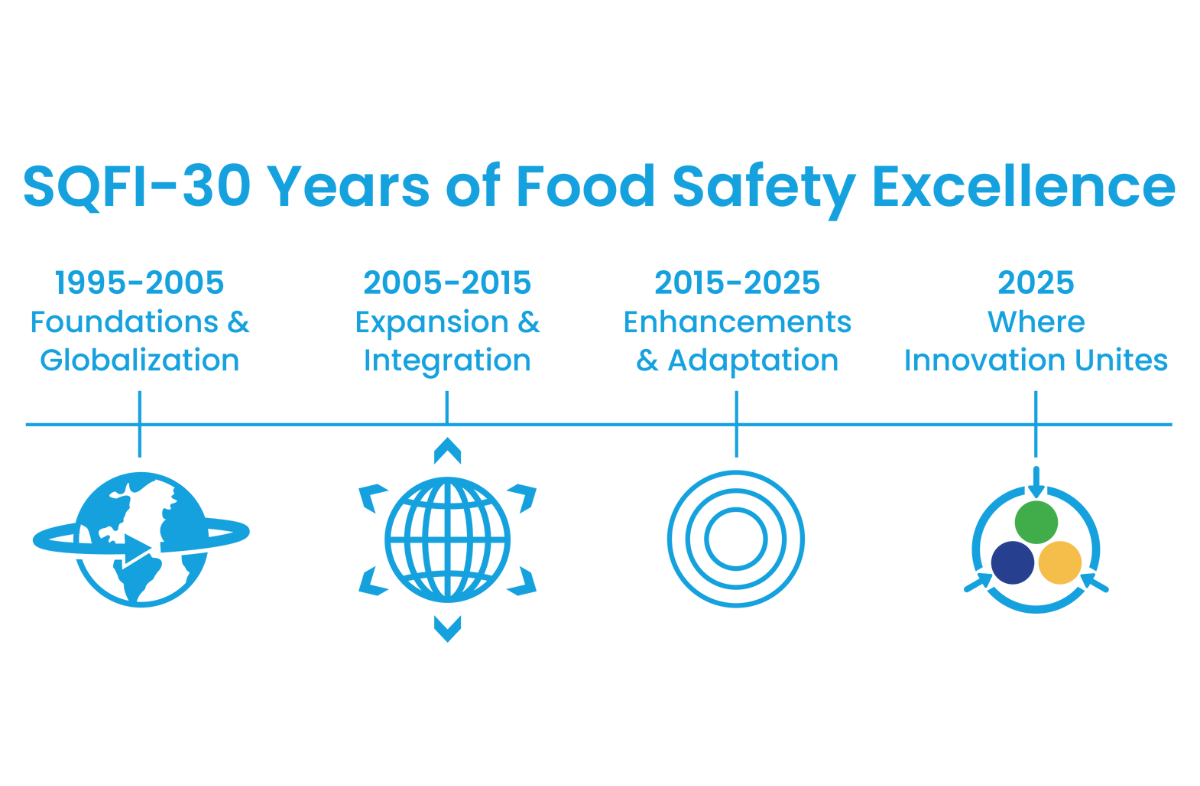By: Ashley Eisenbeiser, MS, CFS, Senior Director, Food and Product Safety Programs, FMI

FDA has launched a new quarterly podcast series that will examine the various aspects of the Agency’s New Era of Smarter Food Safety Blueprint. FMI’s Hilary Thesmar, chief food and product safety officer and SVP, food safety programs was invited to participate in the inaugural FDA TechTalk Podcast to explore the topic of tech-enabled traceability. Dr. Thesmar and industry experts from GS1 US and the Institute of Food Technologists’ (IFT) Global Food Traceability Center (GFTC), joined the FDA to discuss the role technologies and data will have in improving traceability and resources available to companies who want to learn more about improving traceability systems.
Published in 2020, FDA’s New Era of Smarter Food Safety Blueprint outlines the approach to modernize food safety and details their plans to leverage technology and other tools to improve the safety of the food supply. The blueprint looks to both the public and private sectors and in partnership, work to identify and implement solutions that will help achieve the shared goal of protecting public health. The blueprint addresses four Core Elements that are the building blocks of the New Era of Smarter Food Safety:
Core Element 1: Tech-Enabled Traceability
Core Element 2: Smarter Tools and Approaches for Prevention and Outbreak Response
Core Element 3: New Business Models and Retail Modernization
Core Element 4: Food Safety Culture
The first episode of the TechTalk Podcast focuses on Core Element 1 and takes a deep dive into the topic of tech-enabled traceability. Panelists explore the history of traceability; provide their perspective on the role of current and future traceability technologies; discuss opportunities and challenges of food traceability; and share resources and tools that are available to food companies looking to take the next step in their traceability journey. Although the conversation was not about the FDA FSMA Food Traceability Proposed Rule published in September 2020, the rule will certainly drive industry’s management and adoption of traceability systems once the rule is finalized.
Dr. Thesmar offered the following remarks to address traceability modernization at the retail and wholesale level, “The challenge with retail and wholesale is having to capture information for every single type of product that they sell throughout the complex supply chain… [if] we have consistent information that is shared, then how we do it can change over time as we advance from paper-based to digital systems and as technology advances.”
Whether adopting a traceability system voluntarily or to meet regulatory requirements, there are key themes discussed that are essential for implementing an effective, tech-enabled traceability system. The traceability system should:
- Leverage existing global data standards.
- Be interoperable to facilitate the exchange of traceability information.
- Optimize existing resources and expertise beyond food safety.
Technology is a powerful tool that can help facilitate traceability throughout the supply chain; however, technology should make things easier and, most importantly, allow companies to maintain and share standardized traceability data that is accurate and necessary for achieving traceability. Whether records are paper-based, digital or decentralized, a traceability system built on a common set of information, must be flexible to change as technology changes and scalable to meet the needs and traceability goals of a company. As the food industry association, FMI supports its members in their efforts to protect public health and enhance traceability, no matter where they are on their traceability journey.
To learn more about tech-enabled traceability, listen to Episode 1 of FDA’s TechTalk Podcast, which can be accessed on FDA’s TechTalk Podcast website.
Food Traceability Resources
IFT’s Global Food Traceability Center (GFTC) – GFTC and its partners work together to share knowledge, expertise, applied research, data, and resources to help addresses global food traceability challenges and opportunities across the supply chain.
Leafy Green Traceability Pilot – FMI, IFT’s GFTC and several food industry organizations collaborated with industry stakeholders to support the New Era of Smarter Food Safety. These leafy green traceability pilots revealed the value of sharing extended product information during a traceback investigation.
FDA’s Food Traceability Proposed Rule and Supporting Resources

 Industry Topics address your specific area of expertise with resources, reports, events and more.
Industry Topics address your specific area of expertise with resources, reports, events and more.
 Our Research covers consumer behavior and retail operation benchmarks so you can make informed business decisions.
Our Research covers consumer behavior and retail operation benchmarks so you can make informed business decisions.
 Events and Education including online and in-person help you advance your food retail career.
Events and Education including online and in-person help you advance your food retail career.
 Food Safety training, resources and guidance that help you create a company food safety culture.
Food Safety training, resources and guidance that help you create a company food safety culture.
 Government Affairs work — federal and state — on the latest food industry policy, regulatory and legislative issues.
Government Affairs work — federal and state — on the latest food industry policy, regulatory and legislative issues.
 Get Involved. From industry awards to newsletters and committees, these resources help you take advantage of your membership.
Get Involved. From industry awards to newsletters and committees, these resources help you take advantage of your membership.
 Best practices, guidance documents, infographics, signage and more for the food industry on the COVID-19 pandemic.
Best practices, guidance documents, infographics, signage and more for the food industry on the COVID-19 pandemic.
